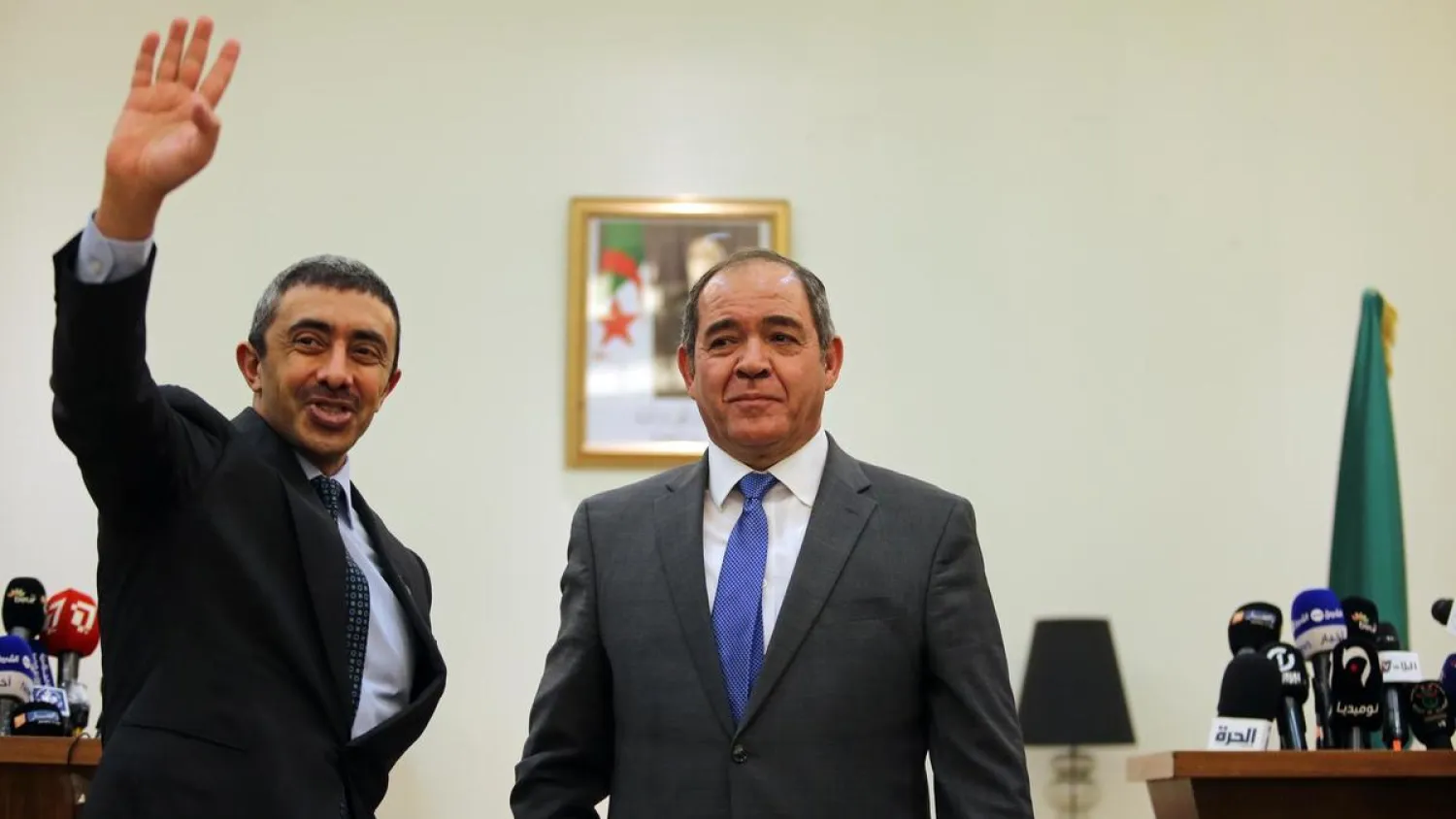The Libyan crisis dominated talks between UAE Foreign Minister Sheikh Abdullah bin Zayed Al Nahyan and his Algerian counterpart Sabri Boukadoum in Algiers on Monday.
In an official visit to Algeria, Emirati official met with Prime MinisterAbdelaziz Djerad and President Abdelmadjid Tebboune.
Diplomatic sources told Asharq Al-Awsat the Algerian government expressed to the UAE its concerns about the large number of terrorists and arms mercenaries in Libya, in light of the military escalation there.
Algeria also stressed its readiness to host a conference on the Libyan crisis if the warring parties agree to attend and reach an internal settlement.
Algiers stressed its keenness to resolve the crisis by peaceful means and through dialogue among Libyans.
“Algeria is greatly concerned about the expansion of the military action in Libya and the intervention of other foreign parties from the region,” sources quoted Boukadoum as saying.
He said Algeria strongly rejects this intervention, which “jeopardizes the security of Libyans and neighboring countries.”
Algeria says it is one of the countries that is most affected by Libyan conflict since 2011, due to the smuggling of weapons and infiltration of gunmen across its borders.
The diplomatic source noted that Algeria has prepared a roadmap for Libyan dialogue, calling on the warring parties to discuss it in a meeting hosted in its territory.
“We believe that hosting this meeting as soon as possible serves the interest of Libya and neighboring countries.”
Besides Libya, Boukadoum said talks with the UAE focused on bilateral cooperation in economy, partnership and investment, with emphasis on some sectors that concern both countries, such as the environment, energy, desert agriculture, tourism and mechanical industries.









